As a hazardous waste and trauma cleanup company, one of the most challenging aspects of our work is helping people deal with and recover from the aftermath of a suicide. Frankly, we wish our services and our crisis counselors weren’t required under these circumstances. September is Suicide Prevention Awareness Month, and the goal is to change the conversation from focusing on suicide to focusing on prevention instead.
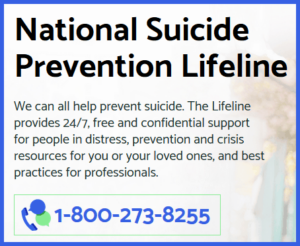 It seems that recently there have been quite a few cases of celebrities taking their own lives, and the news has been full of reports, both of the incidents as well as the effects on the families and friends. With this post it’s our goal to start shifting the conversation to how do we prevent these tragedies?
It seems that recently there have been quite a few cases of celebrities taking their own lives, and the news has been full of reports, both of the incidents as well as the effects on the families and friends. With this post it’s our goal to start shifting the conversation to how do we prevent these tragedies?
Talking about it openly is one of the best ways to start. And we’re partnering with the National Suicide Prevention Lifeline organization to get the word out. The first step is to get the word out – that each one of us can help in preventing another self-inflicted death. The hashtag, #BeThe1To, can get that conversation moving. Be the one to what? There are a number of things that go along with this hashtag, but these are the first two:
- #BeThe1toAsk: Don’t be afraid to ask someone close to you if they’re struggling, because simply asking in a way that’s caring can prevent someone from taking that fatal step. Studies show that when a person who is considering suicide talks about it with someone who is genuinely interested in them, it can actually avert it.
- #BeThe1toKeepThemSafe: The next step is to check your home for things that might be lethal. Often removing the means or making it inaccessible is sufficient prevention.
To find out more about what you can do, visit the website for the National Suicide Prevention Lifeline. They also have resources available. And please share this phone number – it just might save a person’s life. We’ve got plenty of other cleanup work to do – we wouldn’t mind a lot less of this kind.

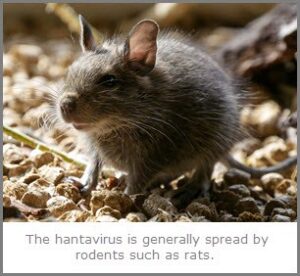 Generally the virus is carried by an otherwise healthy rodent such as a rat. The virus can be transmitted by contact with bodily fluids from rodents (feces, urine, or saliva). What is especially concerning is that the virus can become airborne when these fluids are disturbed by cleanup actions like vacuuming or sweeping. Simply inhaling dust could lead to a severe respiratory infection called Pulmonary Hantavirus Syndrome. This afflicts anyone – even otherwise healthy individuals.
Generally the virus is carried by an otherwise healthy rodent such as a rat. The virus can be transmitted by contact with bodily fluids from rodents (feces, urine, or saliva). What is especially concerning is that the virus can become airborne when these fluids are disturbed by cleanup actions like vacuuming or sweeping. Simply inhaling dust could lead to a severe respiratory infection called Pulmonary Hantavirus Syndrome. This afflicts anyone – even otherwise healthy individuals. Whether you’ve suffered unexpected the loss of a close family member or simply a tenant you didn’t know well, there is an emotional impact. There are so many details to be handled and things to be taken care of that it can all be overwhelming, especially at a time that you may be going through a variety of grieving issues.
Whether you’ve suffered unexpected the loss of a close family member or simply a tenant you didn’t know well, there is an emotional impact. There are so many details to be handled and things to be taken care of that it can all be overwhelming, especially at a time that you may be going through a variety of grieving issues.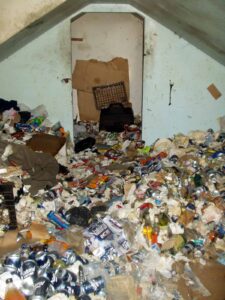
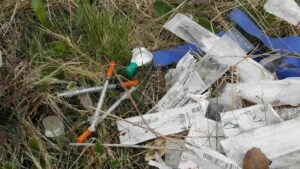 As if the threats posed by IV drug use in homeless encampments in the Seattle area aren’t bad enough,
As if the threats posed by IV drug use in homeless encampments in the Seattle area aren’t bad enough,  Many of those who are classified as homeless live in encampments scattered about in highly populated areas. ‘Tent cities’ often spring up under freeway overpasses and other public spaces like parks. Though there are sanctioned areas, most of these dwellings are illegal, and periodically the city is forced to close it down, clear it up, and clean it up.
Many of those who are classified as homeless live in encampments scattered about in highly populated areas. ‘Tent cities’ often spring up under freeway overpasses and other public spaces like parks. Though there are sanctioned areas, most of these dwellings are illegal, and periodically the city is forced to close it down, clear it up, and clean it up.
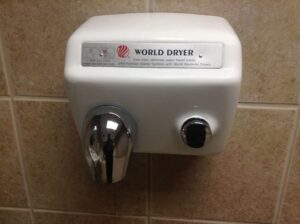 The reason? They’re convenient, and in the long run they are less expensive. There are no paper towels to continually restock, there is no trash to dispose of, and restroom cleanup is simplified – no loose paper towels everywhere to be picked up.
The reason? They’re convenient, and in the long run they are less expensive. There are no paper towels to continually restock, there is no trash to dispose of, and restroom cleanup is simplified – no loose paper towels everywhere to be picked up. One of
One of  But what about cleaning up when blood is present?
But what about cleaning up when blood is present?

